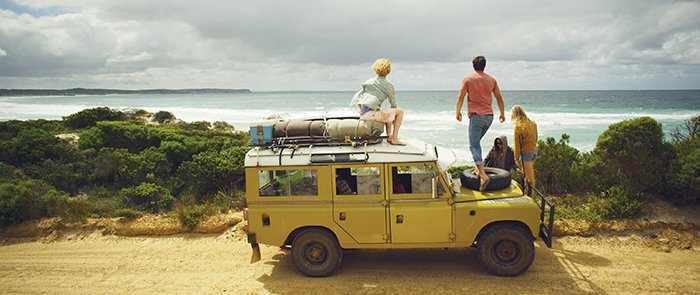Travel Tips

Currency
Australian currency is decimal. Notes are in $100, $50, $20, $10 and $5 denominations and coins are in $2, $1, 50c, 20c, 10c and 5c denominations. Exchange facilities are available at all international airports in Australia and foreign currency and can be changed at most banks.
Driving in Australia
All Australian vehicles are right-hand drive, driving on the left-hand side of the road. Reciprocal driving rights exist between Australia and overseas countries. Your driver’s licence must be current. By law, seat belts must be worn by the driver and passengers at all times. The driver should be familiar with Australian road rules.
Tipping
Employees in Australia do not depend on tips or gratuities as part of their income. Tipping is appreciated but not expected. For good service in a restaurant, the recommended amount is 10 per cent of the bill.
Telephones
Australia’s country code is 61. While mobile phone network coverage is available across Australia, coverage may be limited in some remote areas.
Electrical power
Australia’s electricity voltage is 240 volts AC. Some of the large hotels have power outlets at 110 volts AC. For travellers bringing 110 volt electrical appliances, it is advisable to bring a small 110 volt transformer and a plug conversion kit. If your country does not use appliances within the 230V 50Hz mains voltage range, you will need to purchase a voltage converter. This will transform the voltage from the power outlet into one your appliance can use. You will also need a power adapter. The plugs in Australia have two flat metal pins shaped like a "V" and some may contain a third flat pin in the centre.
Drinking water
Adelaide tap water is filtered, fresh and safe to drink. It conforms with Australian and international drinking water standards.
Travel safety
Australia, and Adelaide, are safe and secure places to visit. Australia’s political system is stable and crime rate is low. However, you should observe the same safety precautions with your personal safety and possessions as you would if you were travelling at home or elsewhere.
There are, however, other factors to consider to ensure your safety.
The Australian sun is very strong and can burn your skin in as little as 15 minutes (even on overcast days). It is very important to protect your skin from excessive exposure to ultraviolet (UV) rays, especially between 11am and 3pm when UV radiation levels are usually at their highest. If you are out in the sun, ensure you are being “sun smart” and cover as much skin as possible with clothing, apply sunscreen (SPF 30+ or higher) regularly throughout the day, and wear sunglasses and a hat (preferably wide-brimmed). You can protect yourself from heat exhaustion by sitting in the shade and drinking plenty of water to avoid dehydration.
Bushfires are a common natural hazard in Australia. For most of southern Australia, bushfire season is from late spring to late summer (October to March).
Dangerous animals should also be considered while travelling in Australia. For example sharks, crocodiles, spiders and snakes. The only harmful spiders in Australia are the red back and funnel web spider, however since 1981 when anti-venoms were made there have been very few deaths due to this. When bushwalking or hiking, you can avoid snake and spider bites by wearing protective footwear. If bitten, seek immediate medical attention by phoning 000. Shark attacks in Australia are rare however you can further increase your safety by swimming between the red and yellow flags on patrolled beaches and not swimming at dawn or dusk. Avoid swimming alone, far from the shore, at river mouths or along drop offs to deeper water. Another factor to consider when swimming in Australian beaches are strong currents called rips. It is important to educate yourself on rip currents and what to do if you find yourself in one. Always swim between the red and yellow flags.
Useful apps
- Uber
- Citymapper
- Google Translate
- Smart Traveller


